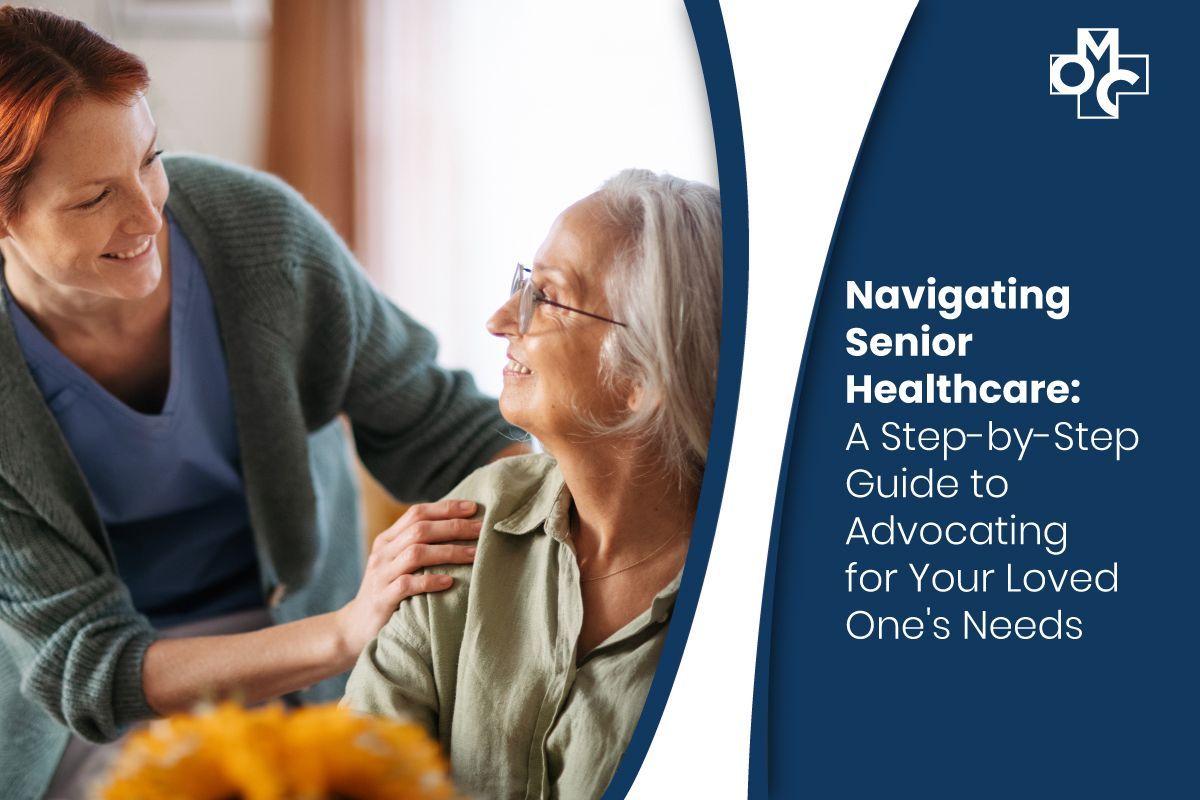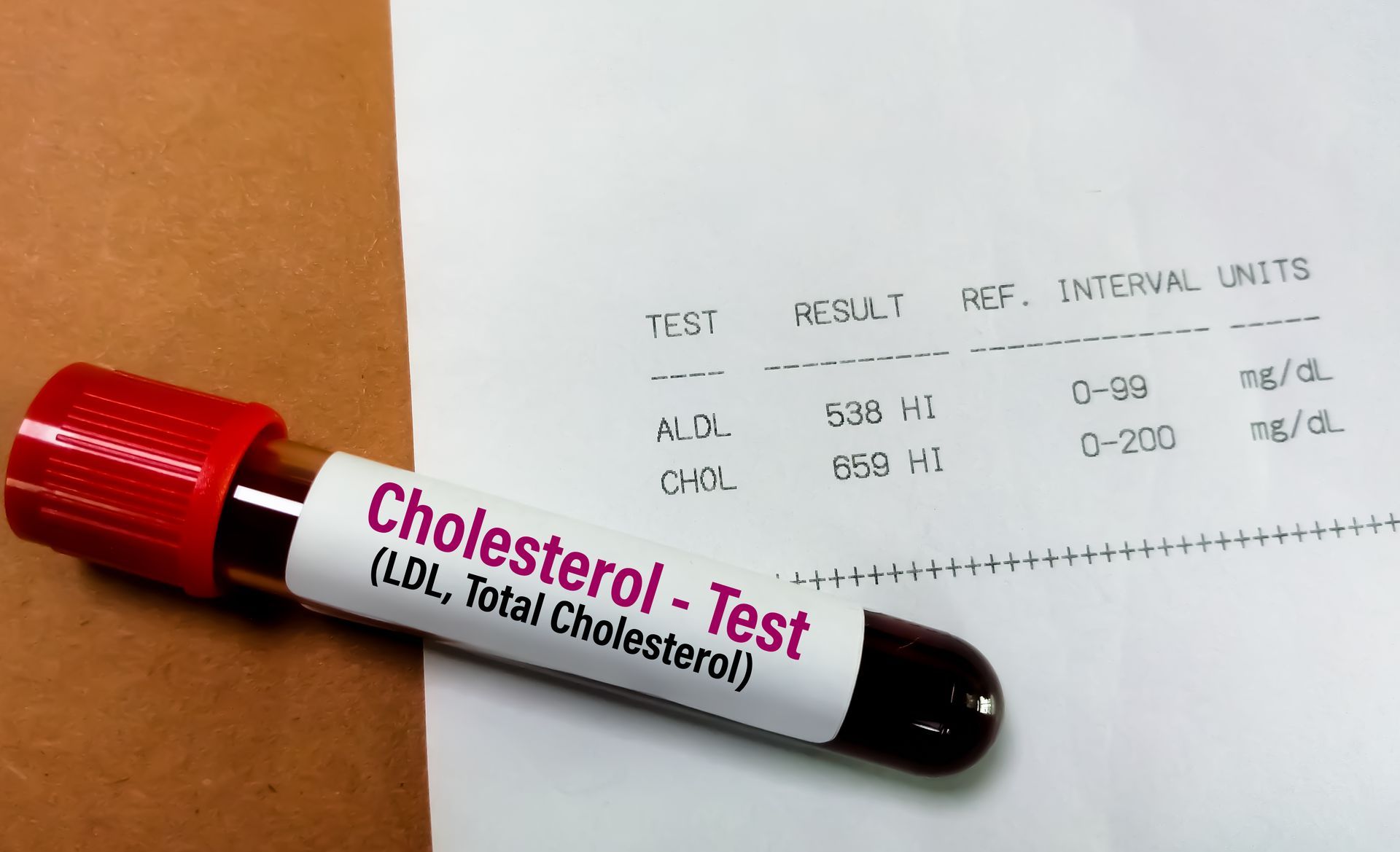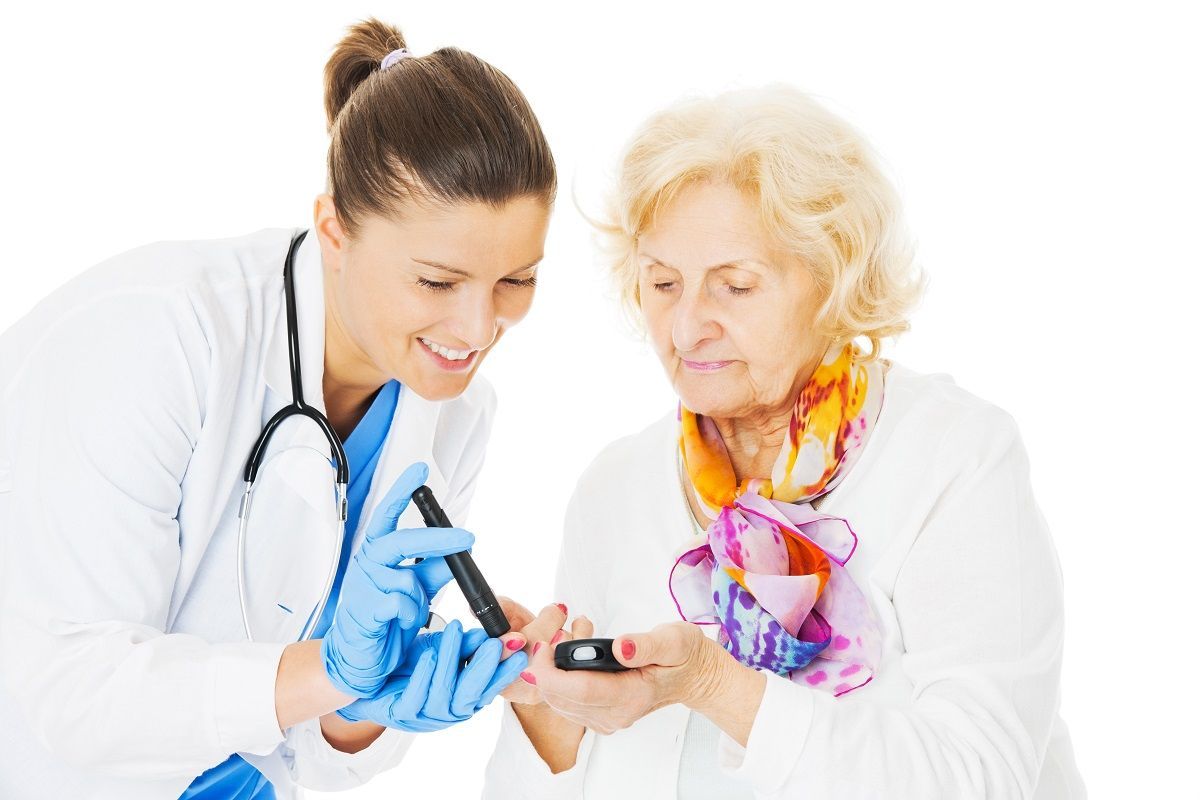Our Location
Elige tu idioma:
Navigating Senior Healthcare: A Step-by-Step Guide to Advocating for Your Loved One's Needs

As our loved ones age, ensuring they receive the proper care and attention they deserve becomes increasingly essential. Senior healthcare can be complex and overwhelming, but with the right knowledge and guidance, you can become an effective medical advocate for seniors. In this step-by-step guide, we will explore the importance of advocacy for elderly individuals and the role of health advocates for older people and provide you with the tools and resources to become an advocate for seniors.
Understanding the Importance of Advocacy for Seniors
Empowering seniors through effective advocacy is the key to meeting their healthcare needs with compassion and understanding. As people age, they face unique challenges and require specialized care. Unfortunately, navigating the healthcare system can be daunting for seniors and their families. That’s where being an advocate for senior care comes in. Advocacy involves speaking up, making informed decisions, and actively working to protect the rights and well-being of your loved ones.
Medical Advocate Definition
A medical advocate primarily focuses on navigating the medical aspects of a senior’s care. They may have a background in healthcare, such as nursing or social work, and specialize in advocating for patients within the medical system. Medical advocates typically work closely with healthcare providers, ensuring seniors receive appropriate medical treatment, understanding their diagnoses, and assisting with medical decision-making. They may accompany seniors to appointments, help interpret medical information, and ensure their voices are heard during healthcare interactions.
Health Advocate Definition
A healthcare advocate for seniors takes a broader approach, encompassing various aspects of seniors’ well-being beyond just the medical realm. They advocate for seniors within the more extensive healthcare system, addressing medical and non-medical needs. In addition to navigating medical care, they may assist with navigating insurance coverage, long-term care options, social services, mental health support, and community resources. Healthcare advocates for seniors often have a comprehensive understanding of the healthcare landscape and work to ensure that seniors receive holistic care that meets their physical, emotional, and social needs.
The Role of a Medical Advocate for Seniors
A medical advocate for seniors is vital in helping older individuals navigate the healthcare system. They act as a liaison between the patient, their family, and healthcare providers, ensuring they meet their needs and hear their voices. Here are some key responsibilities of a medical advocate for seniors:
A. Understanding the Healthcare System
Familiarize yourself with the healthcare system, including insurance coverage, medical procedures, and available resources. This knowledge empowers you to make informed decisions on behalf of your loved one.
B. Communication
Effectively communicate with healthcare professionals to ensure your loved one’s concerns and needs are understood and addressed. Be prepared to ask questions, take notes, and seek clarification when necessary.
C. Medical Information Management
Keep track of your loved one’s medical history, medications, and appointments. This will help you stay organized and provide accurate information to healthcare providers.
Coordinate various aspects of your loved one’s care, such as scheduling appointments, arranging transportation, and managing follow-up care. This ensures continuity and helps prevent any gaps in their healthcare.
The Role of Health Advocates for Older People
Health advocates for older people are professionals who specialize in supporting and representing the needs of seniors. They know senior healthcare, understand older individuals’ unique challenges, and work to ensure their well-being. Here are some ways health advocates can assist in advocating for seniors:
- Assessing Needs
Health advocates can help assess your loved one’s healthcare needs and recommend appropriate services and resources. They can also help create personalized care plans tailored to your loved one’s requirements.
2. Navigating the Healthcare System
Health advocates are well-versed in the intricacies of the healthcare system. They can guide you through the maze of medical jargon, insurance policies, and paperwork, making the process more manageable.
3. Providing Emotional Support
Aging and healthcare challenges can be emotionally taxing for seniors and their families. Health advocates offer empathy, support, and guidance during these difficult times, ensuring that your loved one’s emotional well-being is cared for.
4. Mediation and Conflict Resolution
If conflicts arise between patients, family members, and healthcare providers, health advocates can be neutral mediators. They work towards finding common ground and resolving issues respectfully and constructively.
5. Education and Empowerment
Health advocates empower seniors and their families by providing education on health-related topics, disease management, and available resources. This knowledge equips them to make informed decisions and actively participate in their healthcare.
Becoming an Advocate for Seniors: Step-by-Step Guide
- Educate Yourself
Start by educating yourself about senior healthcare, common medical conditions affecting seniors, and available resources. Attend workshops, read reputable sources, and consult healthcare professionals to expand your knowledge.
- Open Communication
Maintain open lines of communication with your loved one. Encourage them to express their healthcare concerns, fears, and preferences. Actively listen and validate their feelings, ensuring they feel heard and respected.
- Build a Support Network
Contact local support groups, senior centers, and organizations specializing in senior care. Connecting with others who share similar experiences provides emotional support and valuable insights.
- Research Healthcare Providers
Find healthcare providers who have expertise in senior care. Seek recommendations from trusted sources, read reviews, and conduct interviews to ensure they align with your loved one’s needs and values.
- Organize Medical Information
Keep a comprehensive record of your loved one’s medical history, including medications, allergies, and past procedures. Maintain a list of emergency contacts and relevant healthcare providers. This information will be valuable during healthcare visits and emergencies.
- Accompany Your Loved One to Medical Appointments
Attend medical appointments with your loved one whenever possible. Be prepared with a list of questions and concerns, take notes during the visit, and ensure that the healthcare provider addresses all issues raised.
- Advocate for Comprehensive Care
Ensure that your loved one’s medical healthcare plan addresses all aspects of their well-being, including physical, mental, and emotional health. Advocate for including necessary services such as physical therapy, mental health support, and social activities.
- Stay Informed
Stay updated with changes in the healthcare system, insurance policies, and available resources. This knowledge will enable you to provide the best possible support to your loved one.
Empowering Seniors: Your Guide to Effective Healthcare Advocacy
Promoting advocacy for elderly is a rewarding and vital role that makes a significant difference in the quality of an aging person’s healthcare. By understanding the importance of advocacy for elderly individuals, recognizing the role of health advocates for older people, and following this step-by-step guide, you are well on your way to effectively navigating senior healthcare and advocating for your loved one’s needs. Remember, your dedication and support can improve their well-being and ensure they receive the care they deserve.
Navigate senior healthcare confidently by exploring the comprehensive offerings at Ocana Medical Center. Our step-by-step guide provides valuable insights and strategies to become an effective advocate for your loved one. Learn more about our services by visiting our website at https://www.ocanamedicalcenter.com/. Take the first step towards a healthier, happier life by booking an appointment with us today. Call (813) 968-8314 or click the “Book Now” button to speak with us and discover how we can assist you in advocating for older adults.
Ocana Medical, located in Tampa, FL, aims to bring you as much information as possible to keep you healthy. We're in this together. #ocanacares
“Respect. Compassion. Quality. Integrity. These are the values on which Ocana Medical Center was built. Our aim isn’t just to treat you today. We hope to earn your trust and be your healthcare provider for life.”
©2023 Ocana Medical Group, Inc.
USEFUL LINKS
GET IN TOUCH
Call Us Today
Send us Email
Our Location
Ocana Medical Center | All Rights Reserved.












